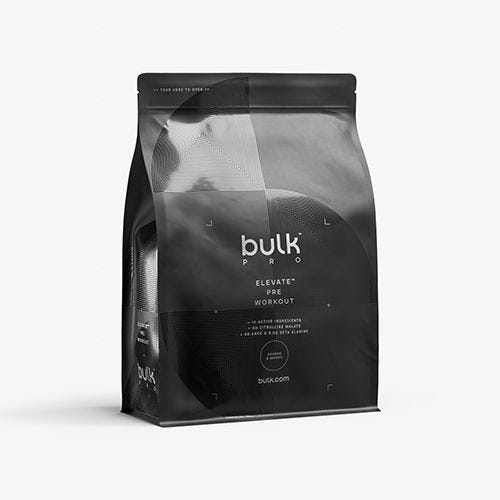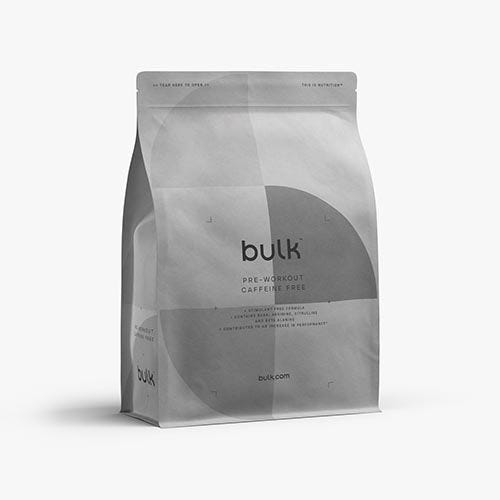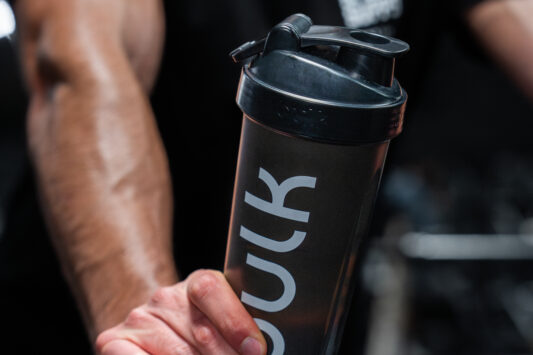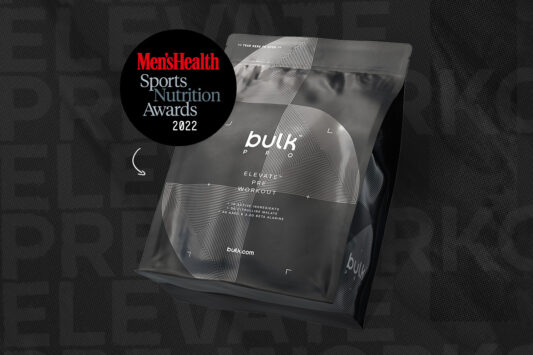Pre-workouts. These supercharged supplements are designed to power up your training, ready to take on any challenge the gym throws at you. But they raise a lot of questions. What actually are they? Should you take one? If so, which one is right for you? And how often? In this article, we delve into the science behind pre-workouts. What does pre-workout do? Let’s take a look.
What does pre-workout do?
Pre-workout supplements are designed to provide a boost of energy and focus to help improve endurance and performance during exercise. They typically contain a blend of ingredients such as caffeine, amino acids and creatine, all of which work together to enhance athletic performance, delay fatigue and improve muscle strength and power.
It’s common for athletes of any level to dabble with a pre-workout supplement, either with the aim of gaining an extra edge on their performance, or to simply boost their physical and mental energy before a workout. It’s most often taken before weight training or HIIT (high-intensity interval training), but can also be taken prior to steady-state cardio.
What is in pre-workout?
While the effects of a pre-workout can vary depending on the ingredients and the amounts used, there are a number of common ingredients found in almost all pre-workout formulas. Let’s explore.
Caffeine: Caffeine is the most popular ingredient in pre-workout formulas (unless it’s a stim-free pre-workout). It’s where many of the benefits of a pre-workout stem from, as caffeine has an effect on energy, focus and alertness.
Caffeine has been shown to improve cognitive function, enhance focus, increase performance, delay fatigue, reduce perceived exertion and overall allow athletes to stay sharp during a training session [1] [2].
Studies also show that consuming low-to-moderate doses of caffeine around 15-80 minutes before exercise improves endurance performance by 2-7% [3], which is why pre-workout can be taken for cardio, as well as strength training.
Creatine: Creatine monohydrate is one of the most popular and extensively researched sports supplements. And for good reason. Creatine has been shown to increase muscle strength, power and endurance [4].
While you don’t necessarily need to take creatine before a workout, it definitely doesn’t do any harm. Creatine increases the availability of ATP (the body’s primary energy source for muscle contraction), improving muscle function and delaying fatigue. If you want to learn more about how to take creatine, see our blog.
Beta-Alanine: Beta-alanine is a non-essential amino acid that helps prevent muscle fatigue during exercise by increasing the body’s concentration of carnosine. Carnosine is a naturally occurring compound that helps prevent muscle inflammation, so acts as an intracellular pH buffer [5].
There is also a tingling sensation often associated with pre-workout. This is called Paresthesia, which typically occurs in people inexperienced with beta alanine. It’s a tingling or itching sensation that lasts around one hour before subsiding on its own. This experience can be minimised by splitting beta alanine into smaller doses.
Beta alanine tends to be dosed at around 3g per serving. However, some individuals may choose to take much lower or higher doses.
Citrulline Malate: Citrulline malate is an amino acid involved in the production of nitric oxide.
Nitrates: Nitrates are compounds found in vegetables such as beetroot and leafy greens. When consumed and assimilated, the nitrates can be converted to nitric oxide in the body.
It’s also worth noting that nitric oxide is a significant contributor to ‘muscle pump’, which is characterised by a temporary increase in muscle size and vascularity caused by the increased blood flow and oxygen delivery to the muscles.
A pump is sought after by bodybuilders and athletes alike, as it not only gives the appearance of a more muscular and defined physique, but it can also have a positive psychological effect on an individual, helping to boost motivation during a workout.
L-Arginine: L-arginine is an amino acid that is involved in various physiological processes in the body, including protein synthesis and the production of nitric oxide. L-arginine is a precursor to nitric oxide, which (as you know by now) helps increase blood flow to the muscles.
While we have already covered the effects of nitric oxide for exercise performance, it’s worth noting that L-arginine, citrulline malate and nitrates all have similar effects, but achieve them through different mechanisms (that’s another article for another day). For more info on the benefits of L-arginine, see our beginner’s guide.
BCAAs: BCAAs (branched-chain amino acids) are a group of three essential amino acids: leucine, isoleucine and valine. These amino acids are the key to muscle protein synthesis and energy production during exercise. For information on when to take BCAAs, see our blog.
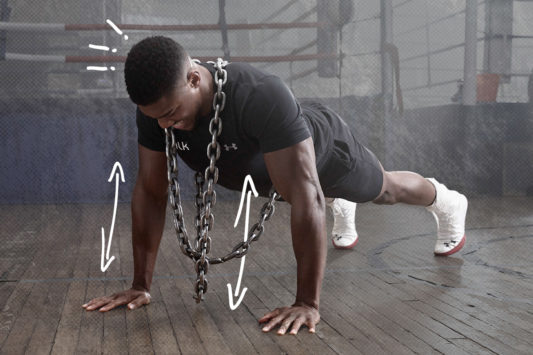
Benefits of a pre-workout
Pre-workout supplements are designed to provide a range of benefits for those looking to improve their physical performance. In terms of what pre-workout does, some key benefits include:
- Increased energy: Pre-workouts contain vitamin B6, which can contribute to reducing fatigue and tiredness.
- Improved focus: The caffeine in pre-workout may elicit a positive affect on cognitive function, improving mental focus and concentration.
When to take pre-workout
Consuming a pre-workout 30-60 minutes before your workout allows the ingredients to enter your bloodstream and provide the desired benefits. When using a pre-workout supplement that contains caffeine, it’s important to allow enough time for it to take effect.
Caffeine has a half-life of three to seven hours. This means half of the caffeine may still be in your system after this time, although the exact duration varies between individuals. It’s important to be cautious when taking a pre-workout in the evening as it may interfere with sleep. For this reason, a caffeine-free pre-workout is a popular alternative for those who prefer a late-night workout.
See our blog for more details on how long pre-workout lasts.
How to take a pre-workout
When taking a pre-workout, it’s good practice to follow the instructions on the label. However, generally speaking, it’s recommended to mix a scoop of pre-workout powder with water or your preferred beverage and drink 30-60 minutes before your workout.
It’s important to start with the lowest recommended dose, especially if you’re new to pre-workout supplements. This is to avoid any adverse effects such as jitters, nausea or headaches.
Is dry scooping pre-workout safe?
In short, no.
We can’t talk about how to take pre-workout supplements without mentioning the dry-scooping trend. Dry-scooping refers to consuming the powder without mixing it with water or any other liquid.
So scooping the powder straight into your mouth followed by a few gulps of water. While this sounds like a quicker and easier way of taking a pre-workout, it can be pretty dangerous and is not recommended. Please always follow the guidelines on the packaging.
Frequently Asked Questions
Is pre-workout bad for you?
Some pre-workouts contain high amounts of caffeine and other stimulants, which can have a negative effect on your health if consumed excessively. Always read the label and follow the dosage instructions carefully. Pre-workout is a supplement worth investing in quality to ensure the dosages are optimal and safe.
Do you need pre-workout?
Not necessarily. A pre-workout is not needed for performance. Focusing on fuelling your workout with wholefoods is vital for sustained performance. In terms of what pre-workout does, it’s a useful supplement to help optimise your energy prior to stepping into your workout.
Can you use pre-workout for running?
Yes, pre-workout supplements can be used for running, as they can help to improve endurance, delay fatigue and enhance mental focus during intense exercise. As mentioned earlier, consuming caffeine around before exercise can improve endurance performance by 2-7% [3]. So, should you take pre-workout for cardio? You can, but consuming caffeine via other means will also be effective.
How often should you take pre-workout?
This would largely depend on the product and your individual needs. It’s typically suggested to take no more than one serving per day. It’s important to follow the dosage guidelines on the label and to not exceed the recommended amount.
It’s generally recommended to not overuse pre-workouts long-term. This is because it could lead to a reliance on the supplement to achieve the same results during exercise. Your body may also become tolerant to the effects of pre-workout, meaning you’ll need to take more and more to feel the effects. It’s best to take a break from pre-workout in order to re-establish a more natural connection with your body and its stimulation.
We believe in encouraging everyone to find their passion for exercise. For more fitness content about pre-workouts, supplements or training, check out @bulk for recipes, ambassador workouts and gym tips. Join our community of fitness lovers and foodies.
Related Products
Related articles
Looking to learn more? We believe that every person, with support, has the right to transform their lives through fitness. That’s why we’ve put together hundreds of articles with expert advice, all to help you on your fitness journey.
How long does pre-workout last?
What does pre-workout do?
Cardio and pre-workout
Why does pre-workout make you itch?
What to eat before a workout
Creatine in pre workout
Beta alanine benefits



